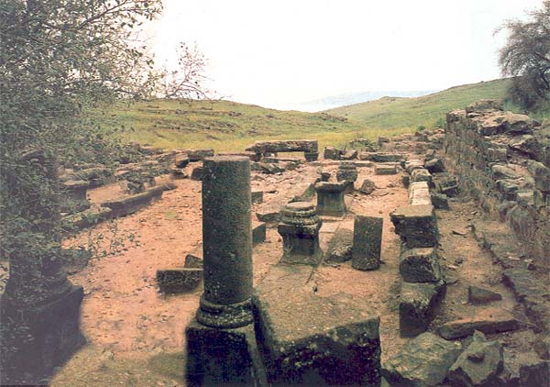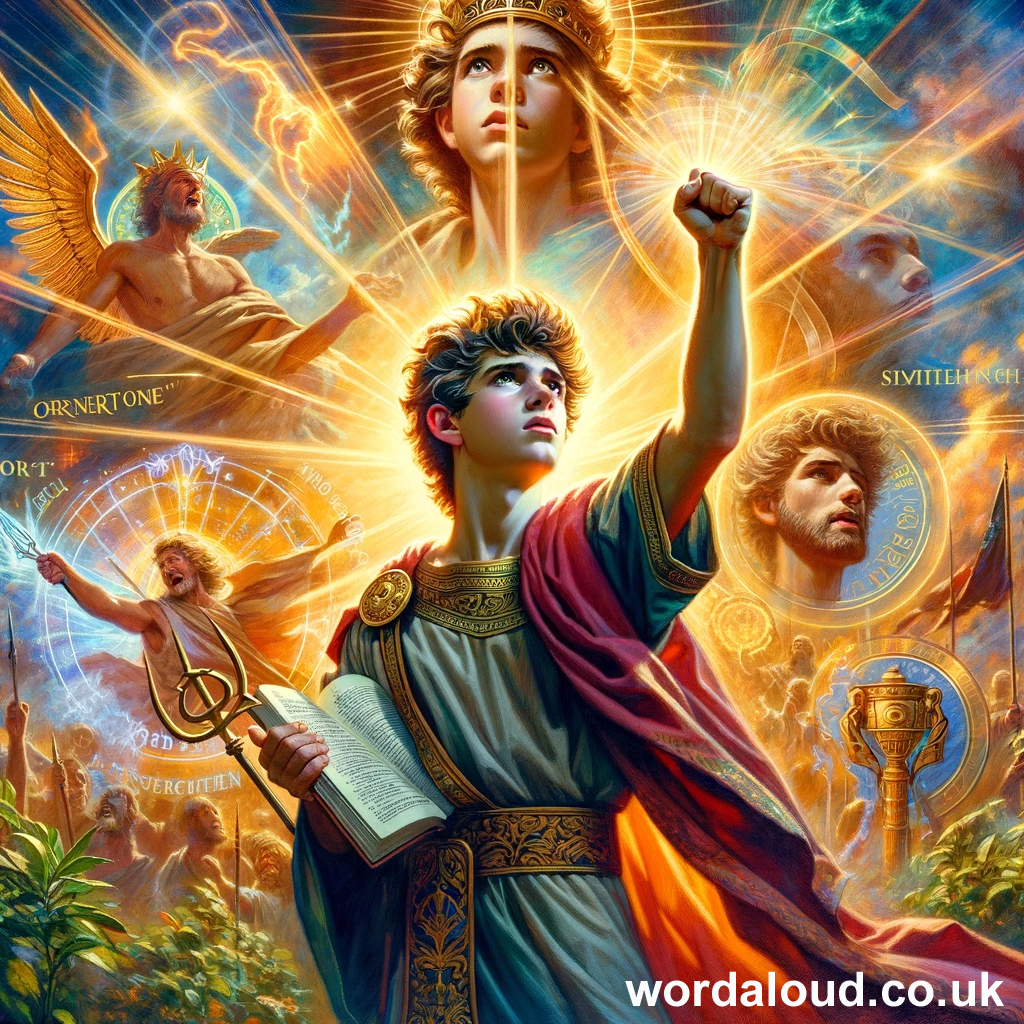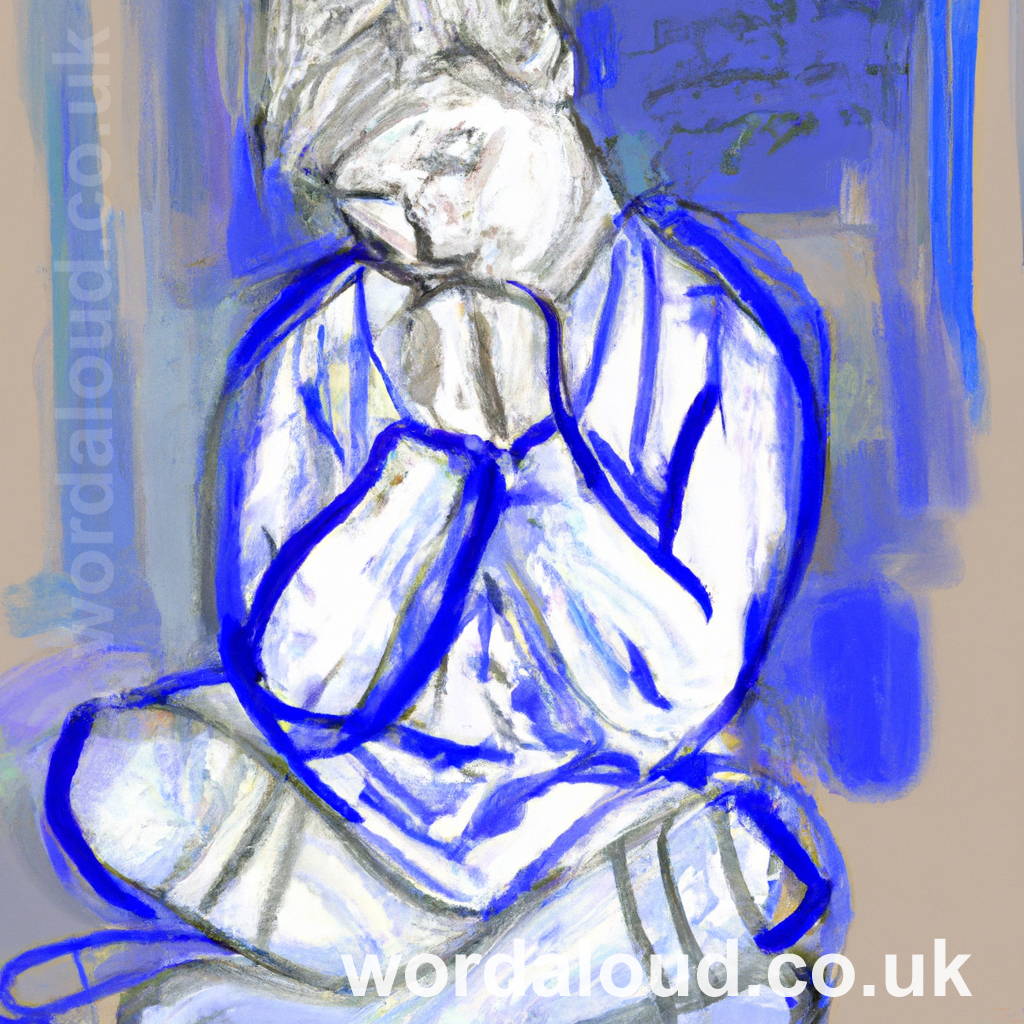Christian Art | ‘Woe Unto Thee, Chorazin’ | Ruins Of Chorazin
Matthew 11: 20-24 – Week 15 Ordinary Time, Tuesday (King James Audio Bible KJV, Spoken Word)
20 ¶ Then began he to upbraid the cities wherein most of his mighty works were done, because they repented not:
21 Woe unto thee, Chorazin! woe unto thee, Bethsaida! for if the mighty works, which were done in you, had been done in Tyre and Sidon, they would have repented long ago in sackcloth and ashes.
22 But I say unto you, It shall be more tolerable for Tyre and Sidon at the day of judgment, than for you.
23 And thou, Capernaum, which art exalted unto heaven, shalt be brought down to hell: for if the mighty works, which have been done in thee, had been done in Sodom, it would have remained until this day.
24 But I say unto you, That it shall be more tolerable for the land of Sodom in the day of judgment, than for thee.
In the Discourse of the Mission, in Chapter 10 of Matthew’s Gospel, Jesus has instructed his disciples about evangelization. Now, in Chapter 11, we are told more of Jesus’ Mission in the region of Galilee – also known as the Lake of Gennesaret and as Lake Tiberius. The area in which Jesus preaches and performs his healing miracles is relatively small, and it is an obscure part of the Empire. In some ways, though, it is a microcosm of the world beyond and the world of later history to come, as we learn of those who will accept and those who will reject Jesus.
We learn in Matthew’s Gospel of John the Baptist’s looking at Jesus with the eyes of the past and failing to understand him. We learn of the scribes and the Pharisees, to whose knowledge Jesus’ teaching seems contrary. We learn of those who have accused Jesus of being a glutton and a friend of tax collectors and sinners. In today’s Gospel verses, Jesus condemns the cities in which he has worked so many miracles, because of their refusal to admit the truth.
We see also in Matthew’s Gospel that it is the little ones, the simple people, who are able to understand and accept the truth of the Kingdom, as Jesus teaches the truth to be. It is these people who are spiritually open, with openness of heart, and who follow Jesus in their multitudes, asking for mercy and for healing, and praising God because of Jesus’ words and miracles.
This is our guide to our proper response to Jesus, and to questions of Christian faith and religious custom. We are to open ourselves fully to conversion to Christ, to give ourselves as little ones, or children – in a sense, to forget who we are. We approach our Lord with open hands, asking for healing and mercy.
Concluding Prayer
Remember this, Lord, and see the enemy scoffing;
a senseless people insults your name.
Do not give Israel, your dove, to the hawk
nor forget the life of your poor ones for ever.
Remember your covenant; every cave in the land
is a place where violence makes its home.
Do not let the oppressed return disappointed;
let the poor and the needy bless your name.
Arise, O God, and defend your cause!
Remember how the senseless revile you all the day.
Do not forget the clamour of your foes,
the daily increasing uproar of your foes. (Psalm 73/74)
![]()
King James Audio Bible | Endnotes
Sodom And Gomorrah | Cities Of The Plain
In Genesis 18, the Lord and two angels appeared to Abraham, and the Lord revealed that he intended to investigate the outcry against Sodom and Gomorrah. The two angels went to Sodom, where they were welcomed by Lot, Abraham’s nephew, who lived there. However, the men of Sodom came to Lot’s house and demanded that the angels be given to them so that they could engage in sexual activity with them.
Lot offered his two daughters instead for the men to rape, but the men of Sodom refused and tried to break down the door. The angels saved Lot and his family and told them to flee the city because God was going to destroy it.
The wife of Lot looked back and was turned into a pillar of salt for so doing.
The destruction of Sodom and Gomorrah is described in Genesis 19:24-25: ‘Then the Lord rained upon Sodom and upon Gomorrah brimstone and fire from the Lord out of heaven; And he overthrew those cities, and all the plain, and all the inhabitants of the cities, and that which grew upon the ground.’
In Matthew 11:20-24, Jesus refers to the destruction of Sodom and Gomorrah when he pronounces judgment on the cities of Chorazin, Bethsaida, and Capernaum.
Jesus says: ‘Woe unto thee, Chorazin! woe unto thee, Bethsaida! for if the mighty works, which were done in you, had been done in Tyre and Sidon, they would have repented long ago in sackcloth and ashes. But I say unto you, It shall be more tolerable for Tyre and Sidon at the day of judgment, than for you. And thou, Capernaum, which art exalted unto heaven, shalt be brought down to hell: for if the mighty works, which have been done in thee, had been done in Sodom, it would have remained until this day. But I say unto you, That it shall be more tolerable for the land of Sodom in the day of judgment, than for thee.’
God’s destruction of Sodom and Gomorrah has been interpreted as that the cities were destroyed as a punishment for their wickedness. Protestant reformer John Calvin wrote that the destruction of Sodom and Gomorrah was a ‘terrifying example of the severity of God’s judgment on sin’.
A controversial aspect of the story is the sin of Sodom. The biblical account states that the men of Sodom wanted to engage in sexual activity with the angels, and this has led some to interpret the sin of Sodom as homosexuality. Others have said that the sin of Sodom was not homosexuality, but rather a lack of hospitality and a failure to care for the poor and needy.
Perhaps it might be added that Lot’s guests were in facts angels. Additionally, it has been interpreted that Lot’s wife looking back was a sign of disobedience and a fixation upon the worldly rather than the divine.
In Ezekiel 16:49-50, the prophet says: ‘Behold, this was the iniquity of thy sister Sodom, pride, fullness of bread, and abundance of idleness was in her and in her daughters, neither did she strengthen the hand of the poor and needy. And they were haughty, and committed abomination before me: therefore I took them away as I saw fit.’ This passage suggests that the sin of Sodom was a combination of pride, abundance, and neglect of the poor and needy, rather than homosexuality.
In the middle ages, the story of Sodom And Gomorrah was used to condemn homosexuality and promote celibacy, and in the modern era, it has been used to condemn sexual immorality, particularly outside of marriage. Some have used the story to promote social justice and care for the poor, arguing that Sodom’s sin was a failure to care for the needy and that Christians are called to do better.








